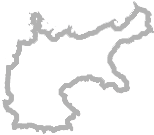

While Europe united to crush Communism, the Allies imposed the Treaty of Versailles on Germany. The effects of this Treaty were to: restrict Germany's ability to wage war; force Germany to pay huge reparations for the War; surrender German territory to France, Belgium, and Poland; make Danzig a free city; and create plebiscite zones with Denmark and Poland (where the local people would later vote for which country they would belong to).
Hungarian-Romanian War begins in wikipedia
After a number of temporary landings starting on 28 March 1919, Italian troops disembarked at Antalya (which was called Adalia at the time), southwest Anatolia, in April, occupying Fethiye, Marmaris, and Bodrum soon after. The occupation was generally peaceful, with the Italians portraying themselves as pro-Turkish and avoiding conflict with the locals. in wikipedia
German army retakes Munich in wikipedia
The Slovak Soviet Republic was declared in Prešov, Slovakia, under the leadership of Czech journalist and Communist, Antonín Janoušek. The republic was effectively a puppet state of the neighboring Hungarian Soviet Republic, which had occupied the territory in its war with Czechoslovakia. The Hungarians were soon expelled, with Prešov falling to Czechoslovak troops on 7 July. in wikipedia
Germany signed the Treaty of Versailles, officially ending its state of war with the Allied Powers. The treaty required Germany to accept War Guilt, disarm, cede 65,000 square km of territory containing 7 million people to its neighbors, and pay considerable reparations (assessed to be 132 billion Marks in 1921). in wikipedia